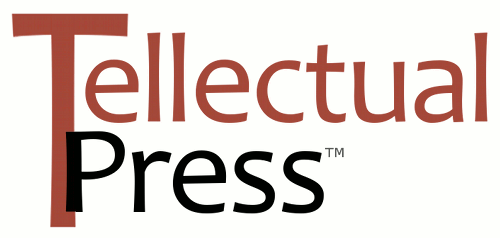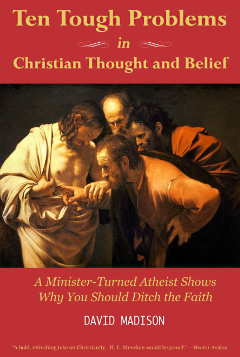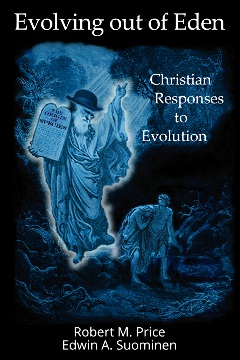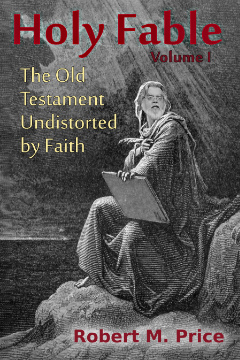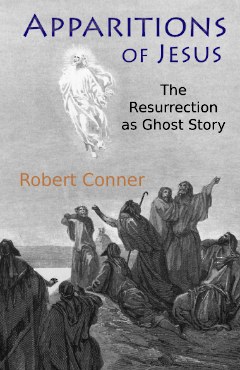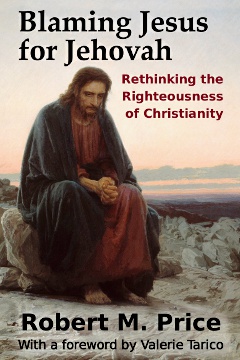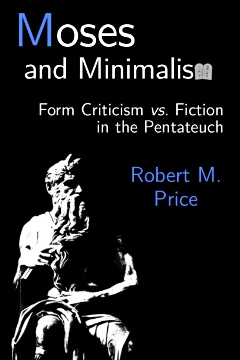David Madison
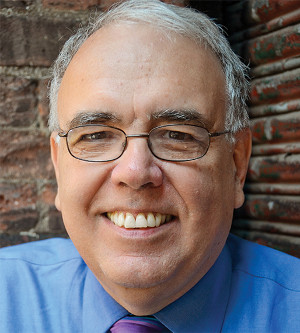
David earned his PhD in Biblical Studies from Boston University School of Theology in 1975, For nine years, he had served as pastor for two congregations in Massachusetts, until his deep interest in the Bible got overshadowed by skepticism.
He was raised on the northern Indiana prairie in the 1940s and 1950s, where, as he puts it in the Prologue to Ten Tough Problems in Christian Thought and Belief, “two religions commanded the loyalty of the locals: basketball and conservative Christianity–and in that order.” He didn’t have much use for basketball, but the “runner-up cult” was the one for him. It was a devotion that would take him years to undo.
Yet his childhood Christianity was no uninformed fundamentalism, thanks to his mother’s scholarly interests and her twelve-volume copy of The Interpreter’s Bible that he consulted from his teenage years on. When he went off to college, he “was a liberal Christian soldier,” if a bit priggish about swearing, drinking, and extramarital sex. It was only at Indiana University that he “came up against unbending fundamentalists, those who were dead serious that the Bible had to be taken as God’s truth, word for word.” Here’s how he describes the stunning experience of realizing that people his age “could be so misguided and trapped in backward thinking”:
“Surely, once they study the Bible the right way,” I thought, “they’ll grow out of it.” I soon discovered that my assumption was naïve. After just a few encounters, I realized that there was no point in discussing the Bible with these folks. Present-day atheist activist Al Stefanelli has said that arguing with a Christian is “like trying to teach calculus to a toaster.” There is no way to penetrate their worldview and the fear of an indifferent universe that lurks behind it.
I was committed to studying the Bible because I was genuinely curious about how it had been cobbled together, and how it is then possible to glean God’s message from its imperfect pages. And surely, if anywhere, God’s message should reside in the words of Jesus. The hunt had been on for more than a century to retrieve the real words of Jesus from all of the words attributed to him in the Gospels. In liberal Protestant scholarship, it just wouldn’t do to accept the simplistic view that all of the words of Jesus in the gospels are authentic. Scholars, even devout ones, were honest enough to admit that it was a real challenge to isolate the words that could realistically be traced back to Jesus.
Rather than being “obsessed with bringing people to Jesus” like the evangelicals, he “was obsessed with learning how the Bible had been created, and how to find nuggets of history.” But even as he was preparing for a Bible-oriented career, “the fundamental concept underlying it all, the concept of God, was eroding, despite a curriculum that was heavily stacked in God’s favor.” He “sensed the lack of objectivity, the illegitimacy of the underlying assumption that there was a category of thought that could or should be walled off from inquiry.”
Now, decades after obtaining that hard-won degree in the Bible and quitting the ministry because of what’s in it (and not in it), Dr. Madison has a thing or two to say about his inquiry into Christian thought and belief.

In addition to Tellectual’s official page, you may wish to visit David’s personal website for his book, at TenToughProblems.com. And of course there’s Amazon.com for the Kindle and print versions.
